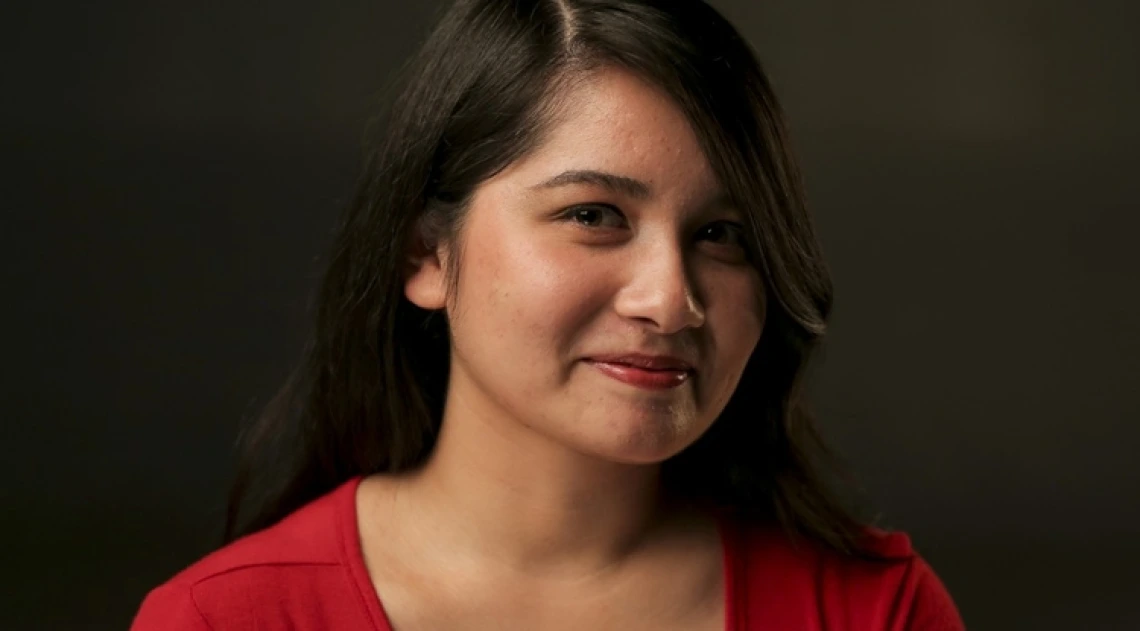New UA Film Grad Embraces China Project

As part of "Looking China," Kaylah Rasmussen will have two weeks to make a short documentary film in the Xiamin Province — and will be mostly on her own
Kaylah Rasmussen, newly graduated from the University of Arizona, soon will take the trip of a lifetime, embarking on a project in a country where she doesn't speak the language.
Is she nervous? Yes, but she's also embracing the adventure and the lessons she knows she will learn.
Rasmussen answered the call from China when it asked for students who had never been there before to visit — and to make a documentary about the experience. She was selected after applying last December.
When Lisanne Skyler, a professor in the UA School of Theatre, Film & Television, emailed students about the opportunity, Rasmussen thought she would be a good match for the project. She is third-generation half-Chinese, interested in learning more about China and its people.
The project, called "Looking China," will put to work 100 young filmmakers from around the world, making documentary shorts about the country they view through their lenses. The themes for this year are charm, ethnography and culture.
The program starts June 20 and goes for two weeks. It won't be a vacation.
"I may get one day to enjoy the city as a tourist, but it could also be a day to help me find my way," Rasmussen said. "It's a work trip."
The province to which she has been assigned is Xiamen, in southeast China near the East China Sea. Other students are assigned to different places in the country, in different parts of the summer.
"I have four days to shoot, so I am restricted to the coastal regions," said Rasmussen, who may create a documentary that focuses on fishing practices.
"It's one of the best places for photography and the most rural," she said. "They do traditional fishing to acquire mussels and use electric rods to lift eels out of the sand. I'd like to live in their shoes for a day. It's so different from how we live here in America — especially the desert."
Rasmussen admitted that the focus could change completely once she is in China.
"I am prepared to change ideas, and that's what makes filmmaking so difficult," she said. "I can go through mapping everything out to the final frame and then circumstances change. Something could be flooded. The location might not be available. I will figure it out as I go. I always have a backup plan. That's what filmmaking is about."
All of the visiting filmmakers participating in the project will be assigned student translators. Rasmussen said a Chinese university student will assist her, acting simultaneously as a first assistant director or producer. But that person is all the help she will get.
"I took two semesters of Mandarin Chinese," Rasmussen said. "Language is the hardest thing for me because I am a visual person. It's a hard language, but it's a very pretty language. The hard parts are the (written) characters."
Xiamen University will provide a dorm room for her while she works. The money to pay for the trip comes from that university, she said.
"If it's anything like film school (at the UA)," she said, "it's going to be a very intense and hectic two weeks. It's not going to be a break. Filmmaking is the hardest thing I've ever done in my life. It requires you to do everything."
As for crossing the ocean and being nearly 7,000 miles from home, Rasmussen said: "I like growing that way. The more uncomfortable you are, the more you grow."


